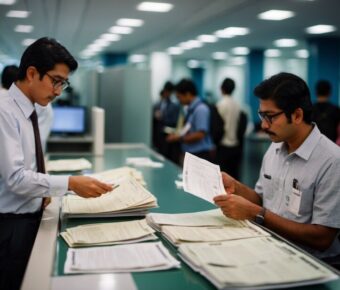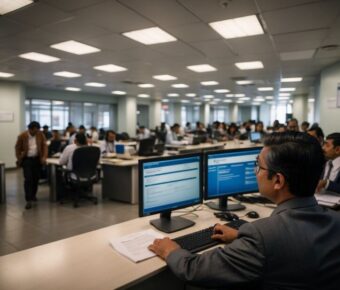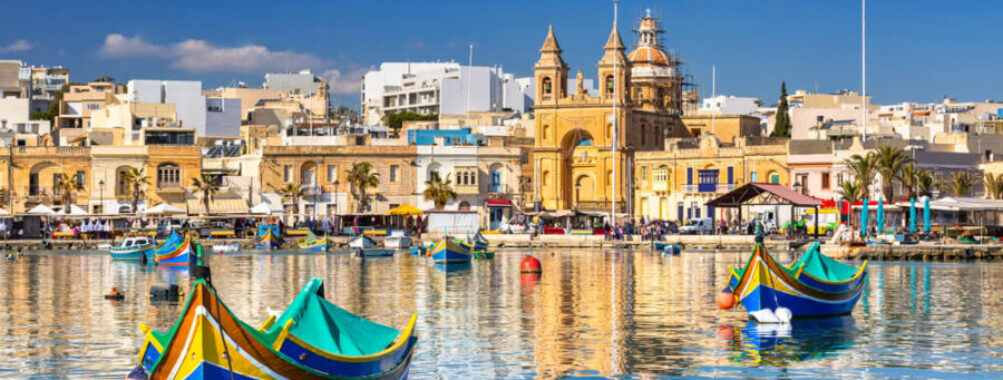
Malta Digital Nomad Tax Benefits: 7 Insider Perks You Didn’t Know About
Ever thought about ditching your dreary office for the sun, sea, and maybe a few too many pastizzi in Malta? Honestly, you wouldn’t be the first. Malta’s been quietly stealing the spotlight among digital nomads, and it’s not just about the turquoise water or those honey-colored stone streets. The tax benefits for remote workers here are, frankly, better than most people expect. I’ve watched plenty of people make the move and never look back—once they see how Malta’s tax system treats digital nomads, it’s tough to resist.
If taxes abroad stress you out, Malta might be the place that finally lets you breathe easy. You could end up keeping a lot more of your income and sidestep the dreaded double-taxation trap. So, how do you set yourself up for a win here? Let’s get into it—preferably with a coffee overlooking the harbor.
Table of Contents
- Key Takeaways
- Overview Of Malta’s Digital Nomad Visa
- What Is the Malta Digital Nomad Visa
- Eligibility Criteria
- Authorized Work And Remote Worker Status
- Tax Residency For Digital Nomads In Malta
- Tax Residency Versus Domicile
- Physical Presence Requirements
- Income Tax Rules And Tax Benefits
- Understanding Malta’s Income Tax System
- Tax Exemption On Foreign Income
- Flat Tax Rates And Tax Perks
- Tax Refunds And Tax Registration
- Double Taxation And International Tax Treaties
- Double Taxation Agreements With Malta
- Double Taxation Relief For Remote Workers
- Tax Planning For International Clients
- Corporate Tax Structures And Maltese Companies
- Corporate Tax Rate In Malta
- Setting Up A Maltese Company
- Other Financial Requirements And Compliance
- Proof Of Stable Income
- Employment Contracts And Background Checks
- Social Security Contributions
- Living As A Digital Nomad In Malta
- Health Insurance Coverage
- Digital Infrastructure And Wi-Fi
- Mediterranean Lifestyle And Outdoor Activities
- Frequently Asked Questions
- What are the specific tax incentives for digital nomads residing in Malta?
- How does the Malta digital nomad visa impact one’s tax residency status?
- What process should digital nomads follow to qualify for Malta’s favorable tax rates?
- Are there any hidden tax-related conditions for digital nomads living in Malta?
- In terms of taxation, how does Malta’s digital nomad visa differ from other types of residence permits?
- Can digital nomads benefit from Malta’s tax treaties while on the nomad visa program?
- Book Your Dream Experience
- More Travel Guides
Key Takeaways
- Malta’s got digital nomad tax perks you don’t want to miss.
- Income tax rules are set up to help you dodge double taxation.
- You’ll need to hit some financial and residency requirements to qualify.
Overview Of Malta’s Digital Nomad Visa

Malta rolled out its digital nomad visa for folks who want to live and work here, legally and hassle-free. You can stick around for up to a year and renew your permit if you keep ticking all the boxes.
This visa is open to non-EU nationals who want to soak up the Mediterranean lifestyle while working remotely. Malta’s application process? Surprisingly simple, but you do need to check off a few important requirements before you dive in.
What Is the Malta Digital Nomad Visa
The Malta Digital Nomad Visa—officially known as the Nomad Residence Permit—lets you live in Malta and keep working remotely for your employer, your own company, or clients based outside Malta. No need to chase after local jobs or ink deals with Maltese companies. Your income stays foreign, but you get to enjoy Maltese residency perks.
Last year in Valletta, I met a freelance writer from Toronto who moved into a sun-drenched flat, kept her Canadian clients, and never missed a beat. That’s the setup Malta’s offering: fast Wi-Fi, English everywhere, a welcoming expat scene, and weather that’ll ruin you for northern winters.
You usually get your permit within a few weeks, and you can add your partner or kids to the application. No need to split up the family. Out of all the European options, Malta’s approach feels refreshingly straightforward and genuinely welcoming.
Eligibility Criteria
To get Malta’s nomad visa, you’ll need to prove you work remotely, show a minimum monthly income (a bit over €2,700 at the moment), secure a place to live, have valid health insurance, and keep your police record squeaky clean. It sounds simple, but make sure your income is steady and comes from outside Malta.
If you’re not from the EU or EEA, you’re the target audience here. EU citizens already have the right to live and work in Malta. Self-employed folks, freelancers, and remote employees for foreign companies all count—just not people working for Maltese businesses.
You apply online first, then upload documents like your lease, contracts, and proof of income. Usually, you’ll hear back in 2-4 weeks, sometimes faster if your paperwork’s tight.
Authorized Work And Remote Worker Status
Here’s the main rule: you can only work remotely for employers or clients outside Malta. You can’t take local jobs or start a business aimed at Maltese customers. That keeps things simple.
| Allowed Activities | Not Allowed |
|---|---|
| Remote work for a foreign company or clients | Employment with Maltese businesses |
| Freelancing for clients abroad | Setting up a local Maltese business |
| Online business operated outside Malta | Providing services in the Maltese market |
You keep your overseas clients or company and live like a local in Malta. The system’s really built for true digital nomads, not folks looking to job-hunt locally. If you travel for work, you’re free to come and go, as long as Malta stays your main base.
Tax Residency For Digital Nomads In Malta
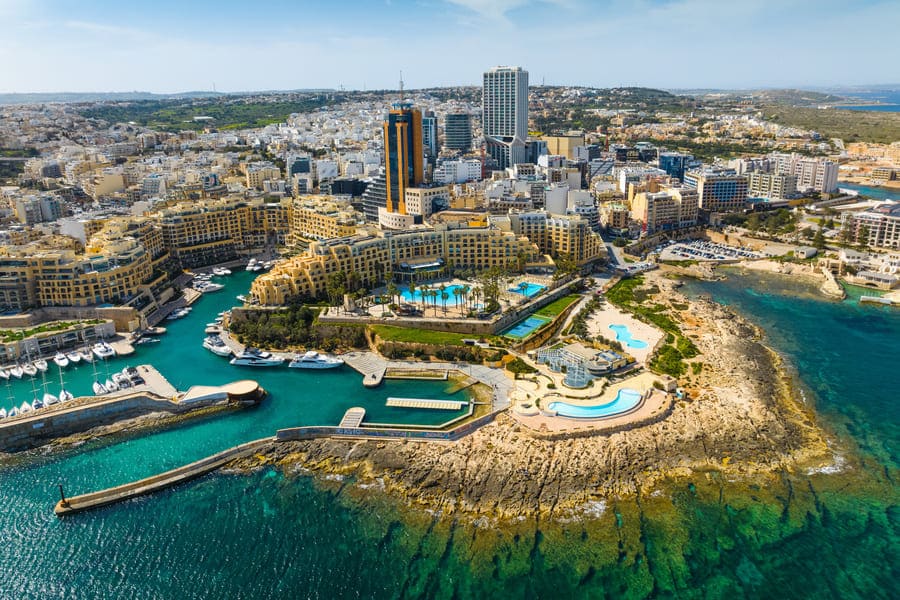
Malta’s tax residency rules can make or break your experience here, so you’ll want to get familiar with the basics. These details matter if you want to enjoy all the perks without getting tangled up in bureaucracy.
Tax Residency Versus Domicile
Let’s clear up two terms that confuse a lot of people: tax residency and domicile. They aren’t the same thing—believe me, I wish someone had broken it down for me sooner. In Malta, tax residency boils down to where you actually live most of the year. If you spend enough time here, Malta might see you as a tax resident.
Domicile is about your roots—your “real” home, which sticks with you even if you move around. Most nomads keep their original domicile, so even if Malta counts you as a tax resident, your foreign income (money earned outside Malta) won’t get taxed unless you bring it into Malta. Handy, right? Just remember, how and where you move your money matters as much as where you open your laptop.
Physical Presence Requirements
Physical presence is about how many days you actually spend in Malta. The famous “183-day rule” applies: if you’re here at least 183 days in a year, Malta can call you a tax resident.
But don’t stress if you’re bouncing around Europe—lots of nomads do shorter stints. With the digital nomad residence permit, you don’t have to hit the 183-day mark, but you still need to show Malta is your main base and you’re not working for local companies. I know people who track every flight and Airbnb stay, just to be sure. Keep your travel records handy—nobody wants a surprise tax bill or awkward questions from the tax office.
Paying attention to these details lets you enjoy Malta’s sunshine and friendly tax setup without worry. Plus, did I mention the pastizzi?
Income Tax Rules And Tax Benefits

Malta’s not just a pretty face—it’s also a smart financial move for digital nomads. If you’re considering the Nomad Residence Permit, you’ll want to know how the tax advantages stack up.
Understanding Malta’s Income Tax System
Malta’s income tax system for foreigners—especially digital nomads—is surprisingly forgiving. Malta focuses on where your income comes from and how long you stay.
If you get the Nomad Residence Permit, you only pay tax on what you earn from “authorised work” in Malta. And even then, you get a generous grace period before taxes kick in. Unlike some countries that tax you from day one, Malta lets you settle in first. That’s a rare find.
You’re not taxed on foreign income earned outside Malta (more on that in a second). Malta expects you to register for income tax, file a return, and follow the rules, but it doesn’t feel like you’re constantly being squeezed.
Tax Exemption On Foreign Income
Here’s a twist that catches a lot of people off guard: as a nomad permit holder, most of your foreign income isn’t taxed in Malta. If you’re freelancing for clients abroad and the money stays in an overseas account, Malta usually leaves it alone—unless you bring it into the country.
This means you can just transfer what you need for rent and daily life, leaving the rest untouched by Maltese tax. It’s not a loophole—it’s how the system works for digital nomads, at least during your first year.
I’ve met remote workers who only bring in enough to cover their costs, keeping the bulk offshore. It’s legal, and it’s smart tax planning if you’re juggling clients in different countries.
Flat Tax Rates And Tax Perks
Here’s a big draw: Malta charges a flat 10% tax on qualifying income from your authorised work in Malta under the Nomad Residence Permit. But for your first twelve months, you pay 0% tax on that income—so you get a whole year tax-free on your authorised work.
After your first year, the 10% flat rate still beats most European countries by a mile.
| Period | Tax Rate on Authorised Work |
|---|---|
| First 12 months | 0% |
| After first year | 10% flat rate |
That’s more cash for travel, gear, or padding your savings. No need to worry about complicated tax brackets—you know exactly what you’ll pay.
Tax Refunds And Tax Registration
You do have to register for income tax as a digital nomad, even if you qualify for exemptions or the flat rate. Malta keeps the process simple—just don’t forget to do it or miss deadlines. There’s an annual tax return and some paperwork, but nothing wild if you’re used to freelancing.
Here’s the usual drill:
- Register for income tax when you arrive.
- Declare your relevant income on your return.
- If you overpay (say, a client withholds extra tax), Malta has a tax refund system. It’s not lightning fast, but you’ll get your money back eventually.
Stay transparent and on top of your paperwork, and you’ll avoid headaches. The lighter admin load means you’ll have more time for the beach, which, honestly, is how it should be.
Double Taxation And International Tax Treaties
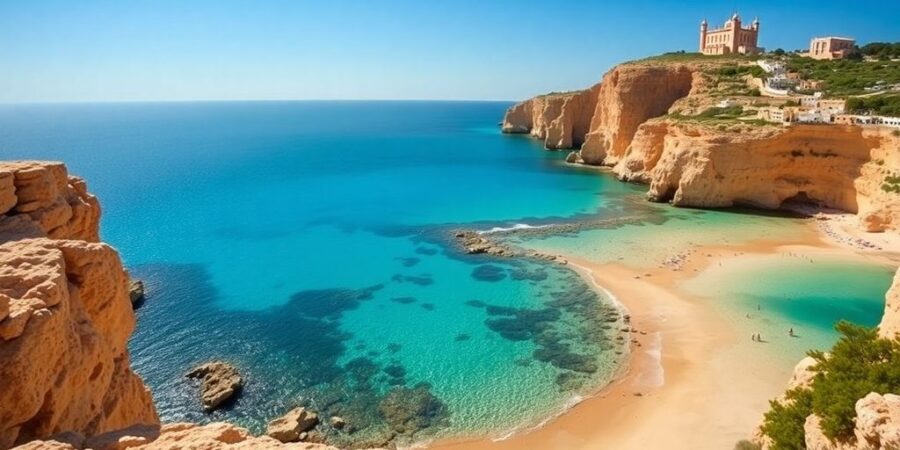
If you’re eyeing Malta for your digital nomad adventure, international tax rules might seem daunting at first. Malta’s big advantage? It’s got double taxation covered, making things a lot less stressful if you’re earning from more than one country.
Double Taxation Agreements With Malta
Malta has a huge network of double taxation agreements (DTAs)—about 80 countries, including the US, UK, Canada, India, and Australia. If your home country’s on the list, you’re in good shape.
These deals mean you won’t get taxed twice on the same income—once in Malta and again at home. If you work for clients in several countries, Malta’s got you covered.
Usually, you pay tax where you earn the money and offset that against your home country’s tax (if you owe any). That means fewer surprises and no nasty bills at year’s end. No one wants that.
Double Taxation Relief For Remote Workers
Here’s where things get even better for digital nomads. If you’re living in Malta on a nomad permit and earning from abroad, you can get double taxation relief under Malta’s treaties.
Let’s say you’re paid by a German company while living in Malta. Thanks to these agreements, you won’t get hit with income tax in both places for the same paycheck. You’ll file your Malta return and claim relief for any taxes you already paid elsewhere.
If you’re self-employed or running your own online business, the forms can be a pain, but the savings make it worth the effort. I know plenty of nomads who panic about international tax paperwork, but if you keep good records and follow the rules, it’s manageable.
Tax Planning For International Clients
If your clients are scattered around the globe, tax planning turns into a superpower. A chat with a tax expert who “gets” digital nomad life can save you a lot of money.
Figure out where your main income streams come from—could be a spreadsheet, or, if you’re like me, a bunch of sticky notes. That way, you can use Malta’s tax treaties to your advantage.
If you’ve got a mix of clients from treaty and non-treaty countries, or you dabble in crypto, royalties, or gig platforms like Upwork, smart planning can make a huge difference. I’ve seen friends cut their annual tax bill just by following these agreements. Don’t skip this step, especially if your setup’s even a little complicated.
Corporate Tax Structures And Maltese Companies
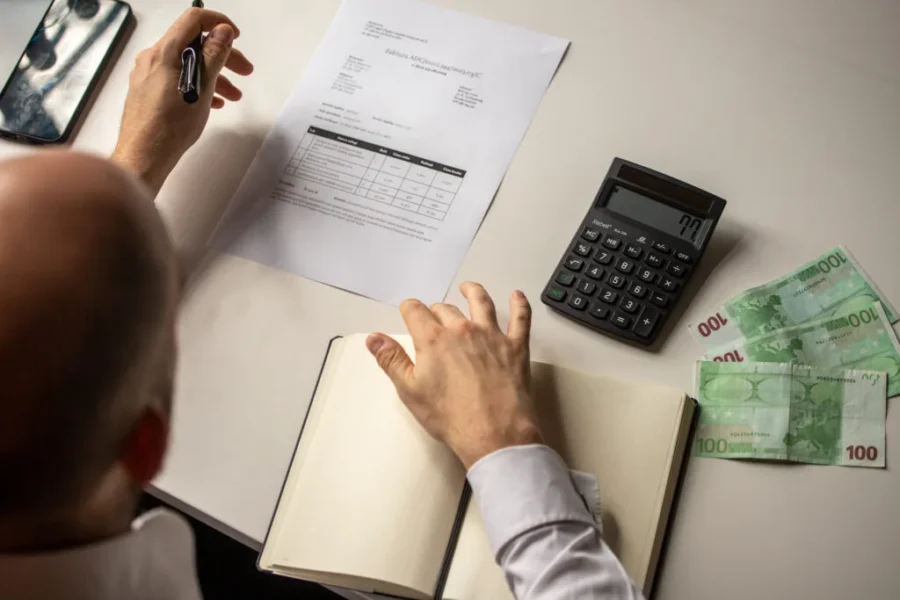
Thinking about settling in Malta as a digital nomad? If you want to keep your taxes low, you really need to get your head around how Maltese companies and their tax system work. It’s not just about what you earn—how you set things up legally can seriously change the game for your wallet.
Corporate Tax Rate In Malta
Malta’s standard corporate tax rate is 35%. Yeah, that number can make you pause. But here’s where it gets interesting—and most people miss this: Malta’s system lets shareholders claim a hefty refund after profits get distributed. For a lot of people, this brings your effective tax rate down to around 5%.
You pay the tax upfront, but Malta hands a big chunk back later if you follow their refund process and keep your paperwork tidy. For digital nomads, especially those billing overseas clients, the gap between the sticker rate and what you actually pay is wild. The catch? Your real rate depends on your company’s activities and how you structure your income.
You might hear about the Malta Global Residence Program. Some people qualify and get extra perks, but most nomads stick with the regular company setup. I’ve chatted with a few folks in Valletta who swear by their local accountants—honestly, never assume you’ll get the lowest rate without professional advice.
Setting Up A Maltese Company
Starting a Maltese limited company isn’t complicated, but there’s a bit of red tape. You’ll need some share capital—just over a thousand euros, but you only pay a fraction upfront. Most nomads opt for a limited liability company to keep business and personal finances separate.
You’ll have to provide a local address and appoint a local director. Annual filings are required, and the paperwork can feel endless if you go it alone. I’d say work with a local provider—they’ll help you set up, open a bank account, and point you to schemes like the Global Residence Program if that fits.
Banking can be hit or miss. Sometimes you’ll open an account in a day, sometimes you’ll chase documents for weeks. But once you’ve got your company number, billing clients in euros from a Maltese café feels like a travel hack no one’s talking about. Imagine sending invoices from a table overlooking the harbor—pretty motivating, right?
Other Financial Requirements And Compliance
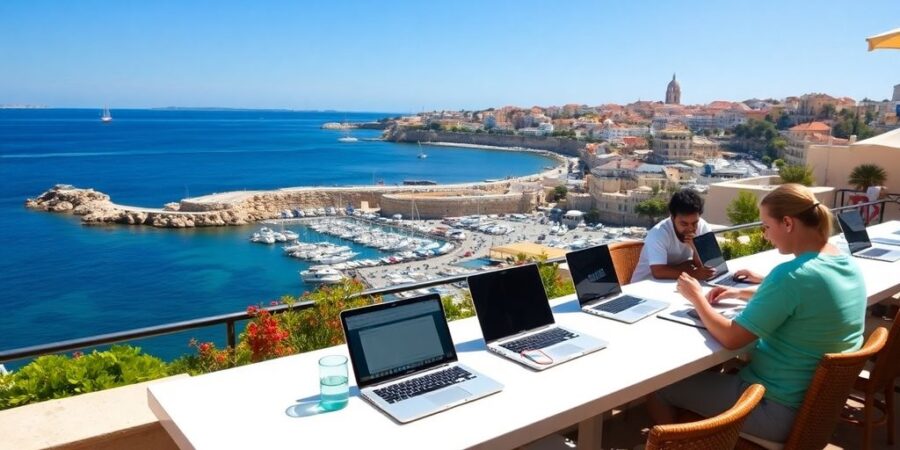
Before you pack for Malta, remember it’s not just about low taxes. The authorities want to know you’re legit and not just here for a beach holiday.
Proof Of Stable Income
First up: you need to prove steady income. Malta isn’t looking for people hoping to get by on a shoestring—they want assurance you can support yourself, usually through remote work or freelancing.
This means showing bank statements, contracts, or payslips from the last few months. If your freelance income’s a rollercoaster, average things out and get your documents in order. A neat PDF of recent paychecks goes a long way. Don’t just wave your PayPal balance and hope for the best.
Don’t fudge the numbers—Maltese officials actually check. If you can show a consistent monthly income (often around €2,700 or more), your application process will go much smoother.
Employment Contracts And Background Checks
You’ll need to prove you actually work for whoever you say you do. This could be an employment contract, a company letter, or—for the freelancers out there—client agreements. If you juggle gigs, gather your contracts, even the short ones.
Background checks are standard. You’ll need a police conduct certificate from your home country or wherever you last lived. Malta wants to weed out anyone with a sketchy history—no one wants to share a coworking table with a wanted hacker, right? These documents can take weeks, so don’t procrastinate.
Check the dates on everything. Malta usually wants recent paperwork—if it’s too old, they’ll turn you away, and that’s a nightmare after all the planning.
Social Security Contributions
Social security gets confusing fast. If you’re in Malta on a digital nomad visa, you usually keep paying social security at home, not in Malta—at least for a year or two.
But if you start working for a Maltese company or decide to stay long-term, you might need to pay into Malta’s system. Check for treaties between Malta and your home country—sometimes you can avoid double payments if there’s an agreement.
Honestly, paying social security at home while living abroad feels weird, but don’t let it lapse. I’ve met travelers who had to fix years of missed payments when they returned home. Set a reminder for those payments—it’s way better than dealing with fines and paperwork headaches later.
Living As A Digital Nomad In Malta
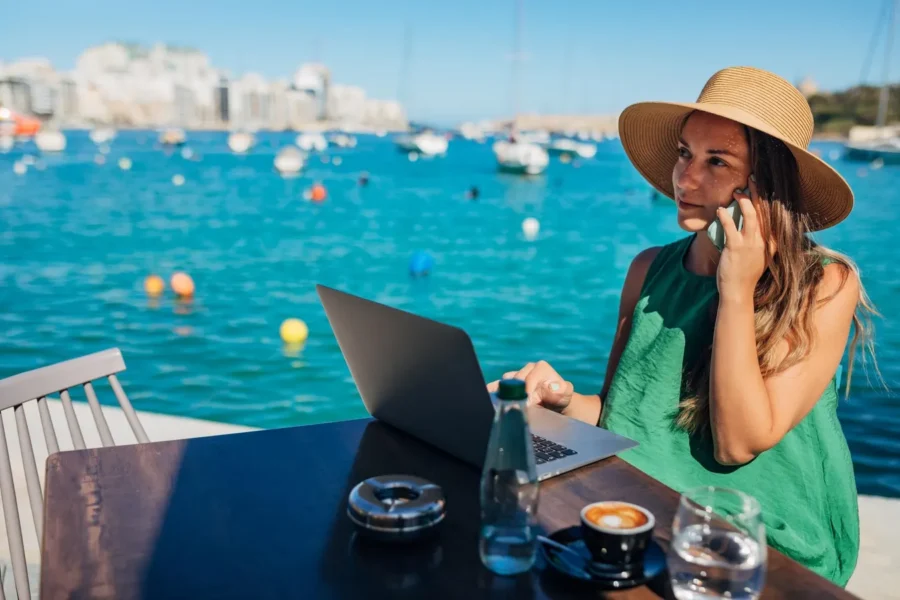
Malta’s pretty great for digital nomads—good healthcare, fast internet, and a climate that’ll make you want to spend all day outside. Settling in is easier than most expect, even if you’re just here for a few months.
Health Insurance Coverage
Let’s be real—getting sick without coverage abroad is terrifying. Malta’s public healthcare is solid, but as a foreign nomad, you’ll need private health insurance. It’s not just smart—it’s usually required for your visa.
The best plans cover doctor visits, emergencies, prescriptions, and sometimes dental. You’ll probably need to show proof of insurance when you apply for your digital nomad visa. I always suggest looking into plans built for travelers—avoid those weird loopholes that leave you stranded. A site like this for international health insurance makes things simple.
Save copies of your policy, numbers, and emergency contacts both online and offline. Malta’s safe, but you never know.
Digital Infrastructure And Wi-Fi
If your Wi-Fi drops mid-call, it’s the worst. Thankfully, Malta’s invested in solid digital infrastructure. Most towns and cities have reliable, fast internet, and you can find public Wi-Fi in cafes and parks. You’ll see plenty of other people working on laptops, so you won’t stick out.
If you care about speed (and who doesn’t?), look for accommodations that list their internet rates. Co-working spaces in Valletta and Sliema are everywhere and packed with remote workers. Bring good travel gear—adapters and portable chargers are essential. Stock up on travel gear before your trip so you’re not scrambling.
Mediterranean Lifestyle And Outdoor Activities
Malta’s Mediterranean lifestyle is easy to fall into. People eat late, hang out outdoors, and genuinely seem to enjoy life. The pace is more stroll than sprint. Lunch breaks last an hour, and nobody bats an eye if you take a long coffee break.
The sea is right there—try paddleboarding before work or a swim at a rocky beach after. If you’re into hiking, you’ll find rugged coastal trails and quiet inland walks just a quick bus ride away. Group sports and yoga classes in the park are great ways to meet other nomads.
The sunny weather means you can plan outdoor stuff almost every day, and honestly, it’s a mood booster. You’ll make local friends just by hanging out near the water or grabbing street food.
Frequently Asked Questions
Malta’s tax perks really do stand out for digital nomads, especially in your first year. But there’s some red tape you need to pay attention to so you don’t get caught off guard.
What are the specific tax incentives for digital nomads residing in Malta?
The main draw? You get a full 12 months tax-free on your remote work income with the digital nomad visa, as long as your work isn’t for Maltese companies or clients.
After the first year, you pay a flat 10% tax on qualifying income. For Europe, that’s tough to beat.
Most nomads I’ve met say the paperwork’s manageable and way less stressful than in other countries.
How does the Malta digital nomad visa impact one’s tax residency status?
Just having a digital nomad visa in Malta doesn’t make you a tax resident. You’re taxed only on remote work income under the visa’s rules.
So, while you’re under the nomad permit, Malta usually doesn’t touch your other earnings (like investments back home or side gigs elsewhere). Still, check your home country’s tax laws so you don’t get hit with double taxes.
What process should digital nomads follow to qualify for Malta’s favorable tax rates?
You’ll need to apply for the Nomad Residence Permit and prove you work remotely for a company or clients outside Malta. Job contracts, proof of freelance gigs, and evidence of sufficient income will be required.
Most people I know found the process straightforward—just paperwork and a small fee. If bureaucracy makes you nervous, local agencies can handle it for you.
Nothing too sneaky, but you must stick to remote work for non-Maltese companies. If you earn from Maltese clients or run a local business, you’ll lose your tax benefits and trigger local tax rules.
You also have to check your eligibility each year and stay on top of renewal deadlines. It’s the stuff no one mentions when they post those dreamy Instagram shots.
In terms of taxation, how does Malta’s digital nomad visa differ from other types of residence permits?
Other Maltese visas usually come with higher income tax rates—up to 35% if you end up as a full tax resident. The digital nomad visa is made for remote workers, and only it offers that first-year tax holiday.
The big thing? Don’t take on local clients. That’s the real line between tax perks for nomads and what standard long-term residents get.
Can digital nomads benefit from Malta’s tax treaties while on the nomad visa program?
Malta offers a hefty stack of tax treaties, but here’s the kicker: digital nomads on the nomad visa usually don’t count as full tax residents. That means you probably won’t get the full shield those treaties provide.
Honestly, if you enjoy digging into legal jargon (which, let’s be real, most of us don’t), you’ll see every situation varies. If your home country taxes your global income, things can get messy in a hurry.
I’d say don’t just guess or hope for the best. Chat with a specialized tax advisor who actually understands these cross-border quirks—most people overlook this and end up regretting it.
